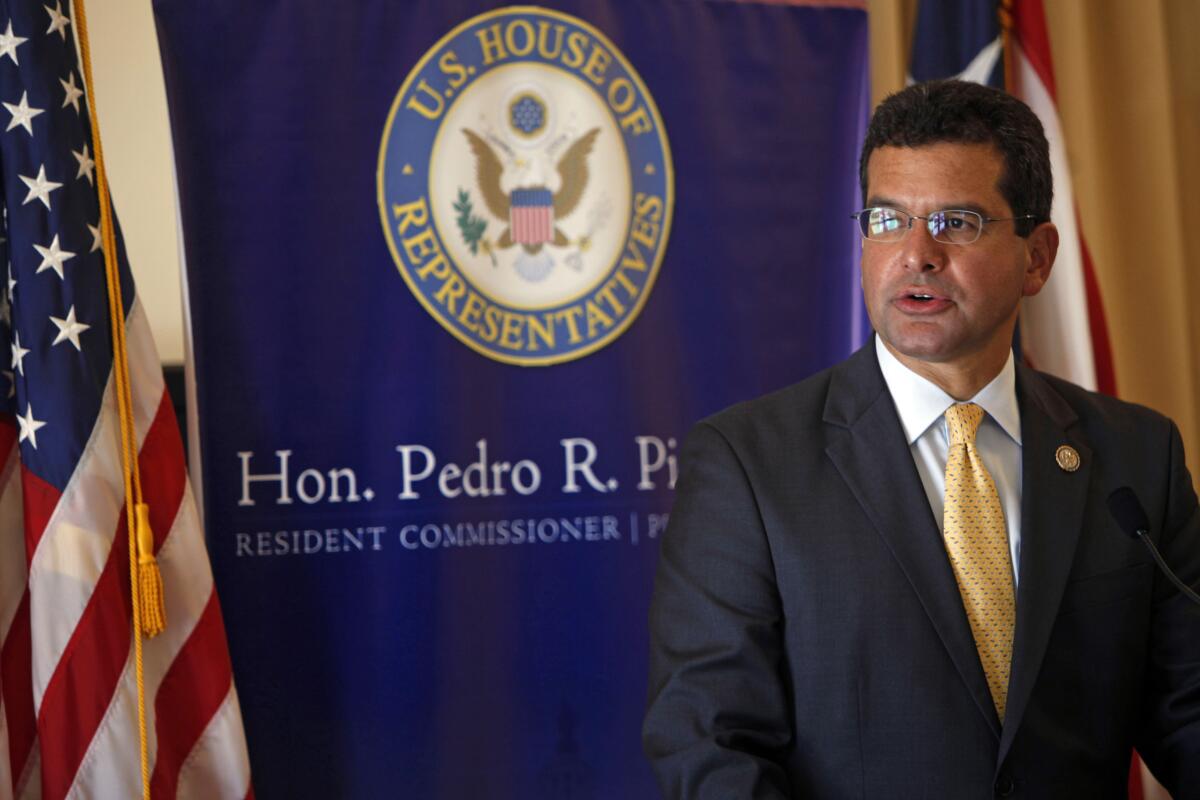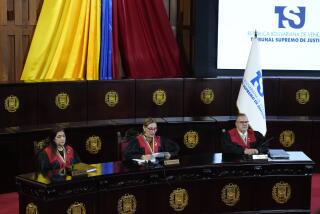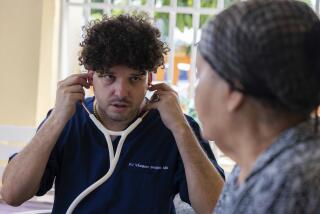Puerto Rico high court rules Pedro Pierluisi can’t be governor

- Share via
SAN JUAN, Puerto Rico — Puerto Rico’s Supreme Court on Wednesday overturned the swearing in of Pedro Pierluisi as the island’s governor less than a week ago, clearing the way for Justice Secretary Wanda Vázquez to take up the post after weeks of turmoil. The unanimous ruling said Pierluisi must step aside immediately.
The high court’s decision, which cannot be appealed, was expected to unleash new demonstrations and deepen the tumult because many Puerto Ricans have said they don’t want Vázquez as governor.
“It is concluded that the swearing in as governor by Hon. Pedro R. Pierluisi Urrutia, named secretary of state in recess, is unconstitutional,” the court said in a brief statement.
Pierluisi said previously he would respect whatever ruling was made. Shortly after it was announced, someone yelled through a loudspeaker near the governor’s mansion: “Pierluisi out! The constitution of Puerto Rico should be respected!”
Pierluisi was appointed secretary of State by then-Gov. Ricardo Rosselló while legislators were in recess, and only the House approved his nomination. Pierluisi was then sworn in as governor Friday after Rosselló formally resigned in response to angry street protests.
Puerto Rico’s Senate sued to challenge Pierluisi’s legitimacy as governor, arguing that its approval was also necessary, and the Supreme Court held in favor of the Senate.
On Monday the Senate decided not to hold a vote although the body’s president, Thomas Rivera Schatz, said Pierluisi had only five of 15 required votes. The same day the Supreme Court announced it would hear the case.
The Senate had also asked the court to declare unconstitutional a portion of a 2005 law saying a secretary of State need not be approved by both House and Senate if they have to step in as governor. Puerto Rico’s constitution says a secretary of State has to be approved by both chambers.
The court agreed that the clause was unconstitutional.
Six of its nine judges were appointed by governors from Pierluisi’s party, the pro-statehood New Progressive Party, and three by the main opposition Popular Democratic Party. The senator leading the challenge to Pierluisi is in his party.
It was not clear exactly when Vázquez, a 59-year-old former prosecutor, would be sworn in as Puerto Rico’s second female governor. She has previously said she is not interested in the job, and some legal experts say she has the right to appoint a secretary of State and step down.
Vázquez became justice secretary in January 2017 and has limited experience leading government agencies. She previously worked as a district attorney for two decades at Puerto Rico’s justice department, handling domestic and sexual abuse cases, and in 2010 was appointed director of the Office for Women’s Rights.
Some critics say that as justice secretary she was not aggressive enough in pursuing corruption investigations involving members of her New Progressive Party, and that she did not prioritize gender violence cases.
Last November, the Office of Government Ethics said it had received a complaint about possible ethical violations involving Vázquez, who was accused of intervening in a case involving a suspect charged with stealing government property at a home where Vázquez’s daughter lived.
Vázquez appeared in court to face charges including two violations of a government ethics law. In December a judge found there was no evidence to arrest her.
Rosselló’s resignation followed nearly two weeks of protests amid anger over corruption, mismanagement of funds and a leaked obscenity-laced chat in which he and 11 other men including government officials mocked women, gay people and victims of Hurricane Maria, among others.
More than two dozen officials resigned in the wake of the leak, including former Secretary of State Luis Rivera Marín.
More to Read
Sign up for Essential California
The most important California stories and recommendations in your inbox every morning.
You may occasionally receive promotional content from the Los Angeles Times.










